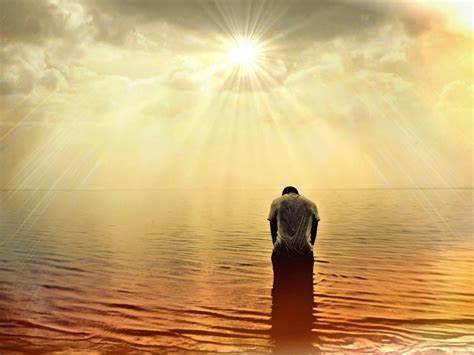


Whenever great teachers have appeared in the world, they have been ridiculed, mocked, often punished, tortured, excommunicated, or even killed. They have shocked people, broken tradition and had their voices repeatedly silenced by rigid believers not ready to accept their words. It is ironic that since humans have learned to think, those in powerful positions have suppressed the voice of reason. Often, people are not ready to take the shock of being told that what they believe is not the truth. There is a beautiful story that illustrates this.
Hidden in the mountains, there was a strange village that had had no contact with the outside world for centuries. In the village, everybody used to walk with crutches. They all had beautiful crutches. They danced and farmed using their crutches. The carpenters there were the richest. They had made an industry of building crutches of all designs, shapes, and sizes. People even gave names to their crutches and worshipped those left behind by the departed ones. As soon as children turned one year old, they would be put on crutches and trained to walk with them.
One day, it so happened that a young man hobbled up to the village square in his crutches and proclaimed excitedly that crutches were not required, and that people could walk without them. He was instantly ridiculed and humiliated. He was scoffed at and laughed at. People started avoiding him and thought that he was a nutcase. They ordered him to get out of the village and not disturb their peaceful existence.
Desperate to prove his case, he asked for a week to prove his case and announced that the next Sunday he would walk without his crutches in the main village square. Everyone was curious and wanted to see this man do what he had preposterously claimed. So, the next Sunday, the whole village came out to the square to watch what would happen as they leaned on their trusty crutches.
The young man came and stood in the centre of the square. There was a pin-drop silence. A curious child craned her neck to watch as the young man nervously dropped one crutch-and a horrified whisper went around the whole square. And then, with great difficulty, the man raised his second crutch and stood swaying. The stunned crowd stood mesmerised, as time stopped for a moment, before they saw the man totter and fall.
The roar of scornful laughter was deafening. No one came up to help the youth, as the laughing and jeering crowd dispersed in a clatter of their ornate crutches. They said to each other, “See, we were right. We knew that he was a mad fellow. It is impossible to move without crutches.”
But, for a brief moment, the quiet girl frowned, and quickly, without being seen, lifted both crutches an inch off the ground.
Most people are walking around on invisible crutches.
Great teachers come to assure us that we can walk without crutches. Often, they too falter, but they remain unafraid. They may fall after they have dropped their crutches, but they persevere so that someday, someone, whose mind has been opened up, will try to walk without crutches.
All our fears are our crutches. How many crutches do we carry? Fear of being rejected, of being left alone, of being abandoned, of dying in pain.
It is we who have to get rid of our crutches. How will we get rid of them? By becoming aware of them.
As soon as we become aware of them, they will drop away. We are usually afraid of what we don’t know.
Often, we aren’t afraid of falling but of getting hurt when we hit the ground. To save ourselves from pain and distress, we take all kinds of safety precautions.
To prevent getting hurt, we want to avoid a fall, so we grab and hold on to crutches.
All that we believe in makes us who we are.
Captain Deepam Chatterjee (Retired) has recently written The Millennial Yogi published by Penguin Random House India.